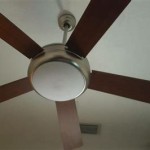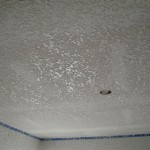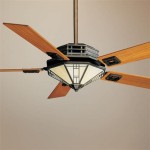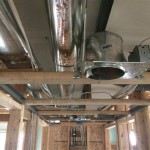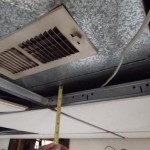How to Clean Water Stains on Ceiling: A Comprehensive Guide
Water stains on ceilings can be unsightly and frustrating, but they don't have to be permanent. Whether caused by a leaky roof, a burst pipe, or other water damage, these stains can be removed with the right techniques and materials. Here's a detailed guide to help you effectively clean water stains on your ceiling:
1. Safety First
Before you begin cleaning, ensure your safety by putting on protective gear such as gloves and a mask. If the water damage is extensive or the ceiling is high, consider using a ladder or scaffolding for better access.
2. Identify the Cause
To prevent further stains, it's crucial to identify the cause of the water damage. Check for leaks in the roof, plumbing fixtures, or windows. If necessary, contact a professional plumber or roofer to address the underlying issue.
3. Blot the Stain
Start by gently blotting the water stain with a clean, absorbent cloth or sponge. Avoid rubbing, as this can spread the water and make the stain worse. Blot until most of the moisture is removed.
4. Dry the Area
To speed up the drying process, use a fan or dehumidifier in the affected area. You can also open windows or doors to promote ventilation. Leaving the area damp can lead to mold and mildew growth.
5. Clean the Stain
Once the ceiling is dry, it's time to clean the stain. There are different cleaning methods depending on the type of ceiling finish:
* Painted Ceilings: Use a mild cleaning solution made with dish soap and warm water. Apply it to the stain with a sponge or soft brush and blot it again. * Popcorn Ceilings: Spray a mixture of equal parts white vinegar and water onto the stain. Let it sit for a few minutes and then blot away the residue. * Wallpapered Ceilings: Consult the manufacturer's instructions for proper cleaning methods. Some wallpapers can be wiped with a damp cloth, while others require specialized cleaners.6. Rinse and Dry
After cleaning the stain, rinse the area with clean water and blot it dry. Repeat the cleaning process if the stain persists.
7. Touch Up (Optional)
If the water stain has left a noticeable discoloration on the ceiling, consider touch-up painting or repairing the damaged area. Use the same paint or wallpaper as the existing finish for a seamless repair.
8. Prevent Future Stains
To prevent further water stains, address any underlying leaks or moisture issues promptly. Regularly inspect your roof, plumbing, and windows for signs of damage. Consider installing water detectors or alarms to alert you to any leaks before they cause significant damage.
Remember, cleaning water stains on a ceiling can be a time-consuming process, especially for larger or older stains. Patience and attention to detail are key to achieving the best results. If you encounter any difficulties or the stains are particularly stubborn, don't hesitate to consult a professional cleaning or restoration service.

Water Stains On The Ceiling How To Fix Them Bob Vila
How To Quickly Easily Remove Water Stains On Your Ceiling Without Painting Melanie Lissack Interiors

4 Causes Of Water Stains On Your Ceiling Ways To Respond Dry Force

How To Use Ceiling Paint Cover Water Stains

How To Remove Water Stains From A Drywall Ceiling

Super Easy Way To Remove Water Stains From Ceilings Without Paint 1 Step Abbotts At Home

4 Causes Of Water Stains On Your Ceiling Ways To Respond Dry Force

Super Easy Way To Remove Water Stains From Ceilings Without Paint 1 Step Abbotts At Home

3 Ways To Get Water Stains Off A Ceiling Wikihow

How To Clean Water Stains From Your Ceiling
Related Posts


